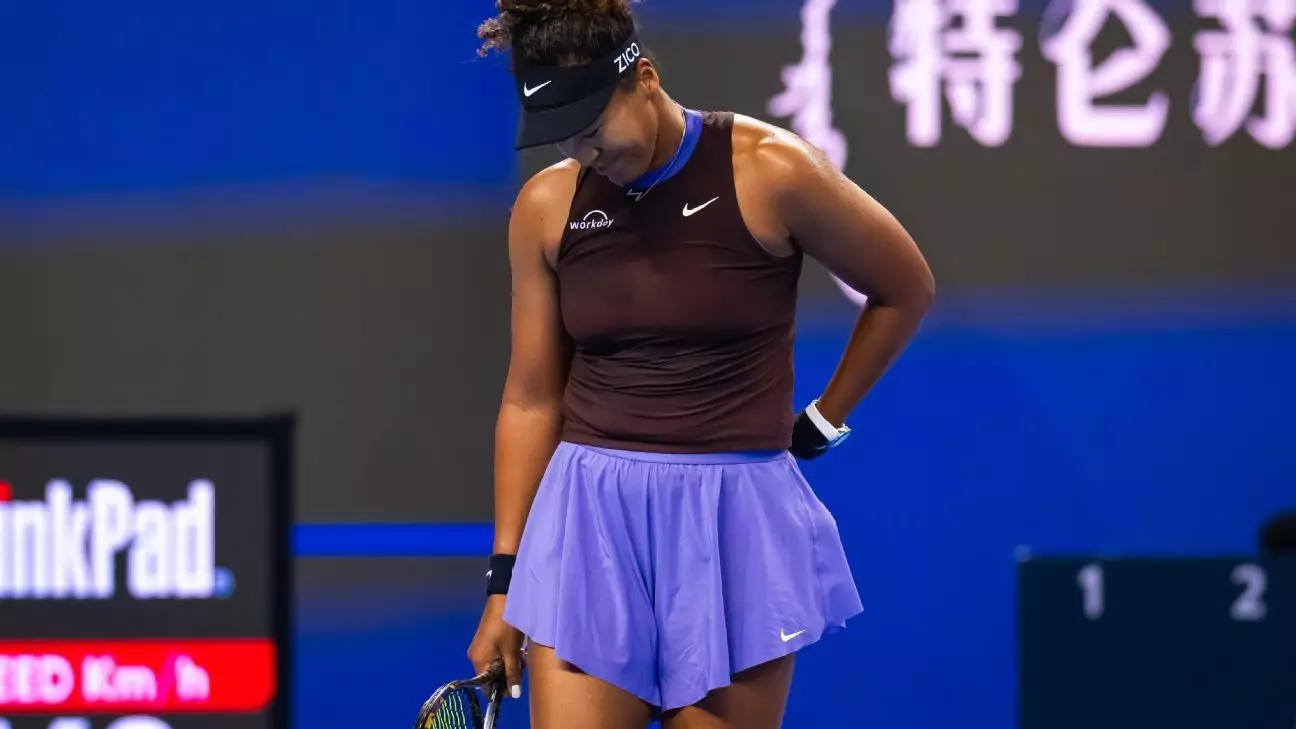In a significant announcement for her fans and the sporting community, Naomi Osaka has declared her decision to forgo participation in next month’s Billie Jean King Cup finals in Spain. This choice comes as a necessity for her recovery from injuries that have plagued her throughout the challenging Asian tournament circuit. By opting out, Osaka is focusing on health, signaling a strategic approach as she gears up for the upcoming 2024 Australian Open, a title she has claimed twice.
The toll of competitive sports is as much a mental battle as it is a physical one. For Osaka, whose ranking has dropped to 56 following a season marked by injury and recovery post-maternity, this decision may weigh heavily. However, it reflects a mature understanding of her limits and the necessity of finding the right balance between health and competition.
Osaka’s recent MRI findings revealed a bulged disc and ruptured abdominal muscles, injuries that can significantly hinder performance and longevity in tennis. She expressed her concern upon realizing the extent of her condition, admitting the difficulty of stepping back when one is so passionate about competing. “I thought I strained my back,” she said, illustrating the initially underestimated severity of her injuries.
While setbacks can be disheartening, they can also serve as opportunities for growth and recovery. For Osaka, prioritizing her health may pave the way for a more fruitful and sustainable career in the long run. This shift in focus is not only wise but necessary, as it allows her time to heal before re-entering the fray of professional tennis.
Adding to the complexity of her current situation is Osaka’s recent coaching change. After parting ways with Wim Fissette, she has now begun training under Patrick Mouratoglou, perhaps best known for his role in the career of Serena Williams. This new partnership signifies a desire for renewal and innovation in her approach to the game, indicating that Osaka is not simply resting but actively seeking ways to enhance her skills and strategies.
Coaching transitions can often bring about renewed motivation and new perspectives, which may be crucial as she prepares for an ambitious return. Given Mouratoglou’s successful history, fans are left hopeful that he can help Osaka regain her competitive edge when she returns to the court.
Osaka’s decision to step back is emblematic of a new philosophy in the sports world that emphasizes player well-being. The psychological and physical pressures of being in the limelight can take a toll, and her awareness of this reality is commendable. For athletes, moments of respite are not a sign of weakness but rather a demonstration of resilience and foresight.
As Osaka takes this time for recovery, the focus now shifts to her future endeavors. The 2024 Australian Open will be a critical tournament for her, potentially marking a triumphant return to a stage where she has previously found incredible success. Fans and analysts alike will be watching closely, eager to see how she rebounds from this challenging season and what innovations her new coaching approach may bring.
While the immediate future may seem uncertain for Osaka, her decision to prioritize health and strategy reflects a resilient mindset. This thoughtful approach positions her not just for recovery but for potential future triumphs in the ever-challenging landscape of professional tennis.

